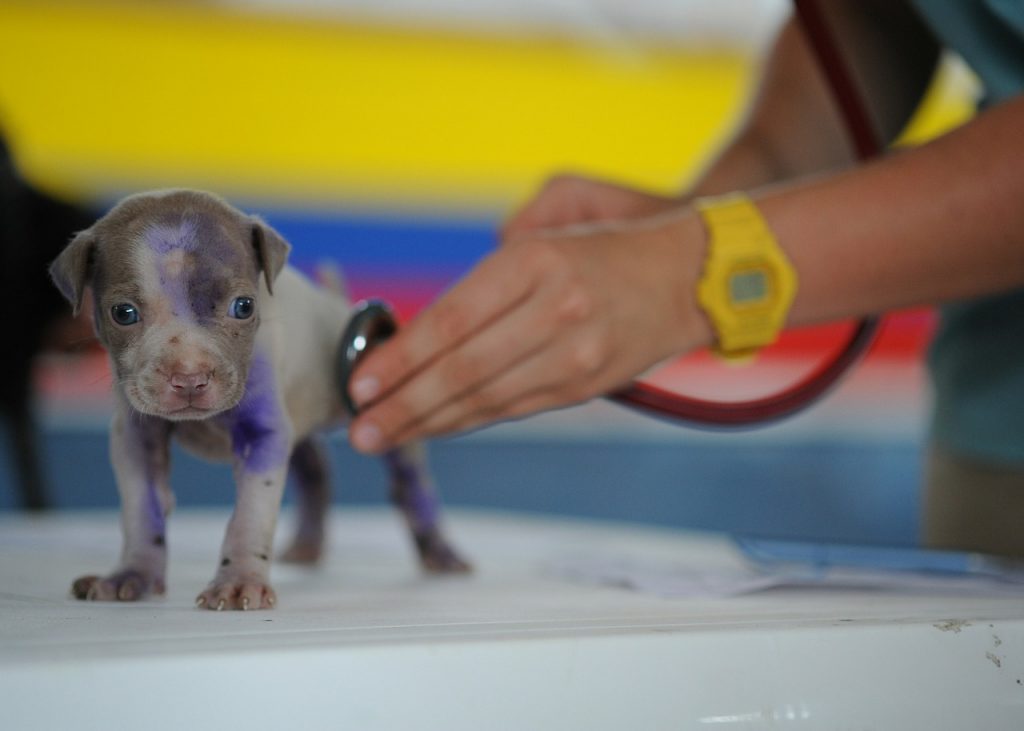
Pet emergency care situations are typically sudden and unexpected, ranging from serious injuries, to bites, to possible poisonings. Ongoing illness or even sudden illness can become suddenly worse and require immediate attention by your veterinarian. It is not always possible to ensure that your pet will never have an emergency, but you can reduce the likelihood of many of these situations — and be prepared for an emergency or disaster situation.
4 Important Tips For Pet Emergency Situations
- Keep your pet’s medical information on file for easy access
- Keep your veterinarian’s phone number in your cell phone
- Know where the closest 24-hour veterinary hospital is located
- Keep a first-aid kit on hand for treating minor emergencies
Pets with emergency situations present special challenges, as many times the underlying problems may not appear for 24-48 hours. All sorts of variables contribute to the overall success of emergency treatment, including the severity of the injury or illness, amount of blood or fluid lost, your pet’s age, delays in receiving treatment and any previous health problems.
Also Read <Pet Emergencies: What Should You Know?>
Knowing your pet’s habits and normal behaviors will help you recognize if something is wrong. Look for changes in your pet’s normal physical condition. Changes in gait, eating, elimination habits or dog grooming can indicate a medical problem. Getting your pet to your veterinarian as quickly as possible is the most important thing you can do to ensure successful treatment.
What To Put In Your Pet First Aid Kit
Ready-made first aid kits are available at your local pet store or veterinarian’s office, and you may be able to enroll in a first aid class for animals in your community, local college or through the Red Cross. It is not a substitute for proper veterinarian care; however it can come in handy. A first aid kit should include the following:
- Bandaging materials (gauze, sterile pads, flexible bandages, bandaging tape)
- Cotton balls and swabs
- Muzzle (you can make one with gauze)
- Small scissors
- Saline solution
- Tweezers or forceps
- Hydrogen peroxide
- Bulb syringe
- Thermometer
- Splinting materials
- Antibiotic ointment
- Chlorhexidine wash
When an emergency occurs, call your veterinarian right away and be prepared to describe the situation over the phone. Your veterinarian or technician may instruct you with first-aid treatment and how to safely transport your pet to their office for treatment. Calling ahead also allows them to prepare for your arrival.
ALWAYS REMEMBER
An animal that is injured or in pain may scratch or bite, so always approach them carefully. Taking precautions for your own safety is an important consideration. Using a muzzle from your first-aid kit is an option, or you can make one with gauze; however NEVER MUZZLE A PET with chest injuries, especially those with a short nose, such as pugs. Do not leave them alone. Placing a light towel over their head can help decrease aggressive or fearful reactions.
If your pet is not breathing, you may need to perform mouth – nose resuscitation and chest compressions. Ask your veterinarian or a pet emergency hotline to give you instructions. To perform mouth-to-nose resuscitation, close the animal’s mouth and place your lips over the animal’s nostrils, giving 3-4 strong breaths. If the animal does not start breathing on its own, breathe for the animal 10-12 times per minute. If there is no heartbeat, perform 5 chest compressions to 1 quick breath. Continue until the animal starts breathing on its own, or until you get to your veterinarian.
Reviewed and Approved by Dr. David L. Roberts, DVM









